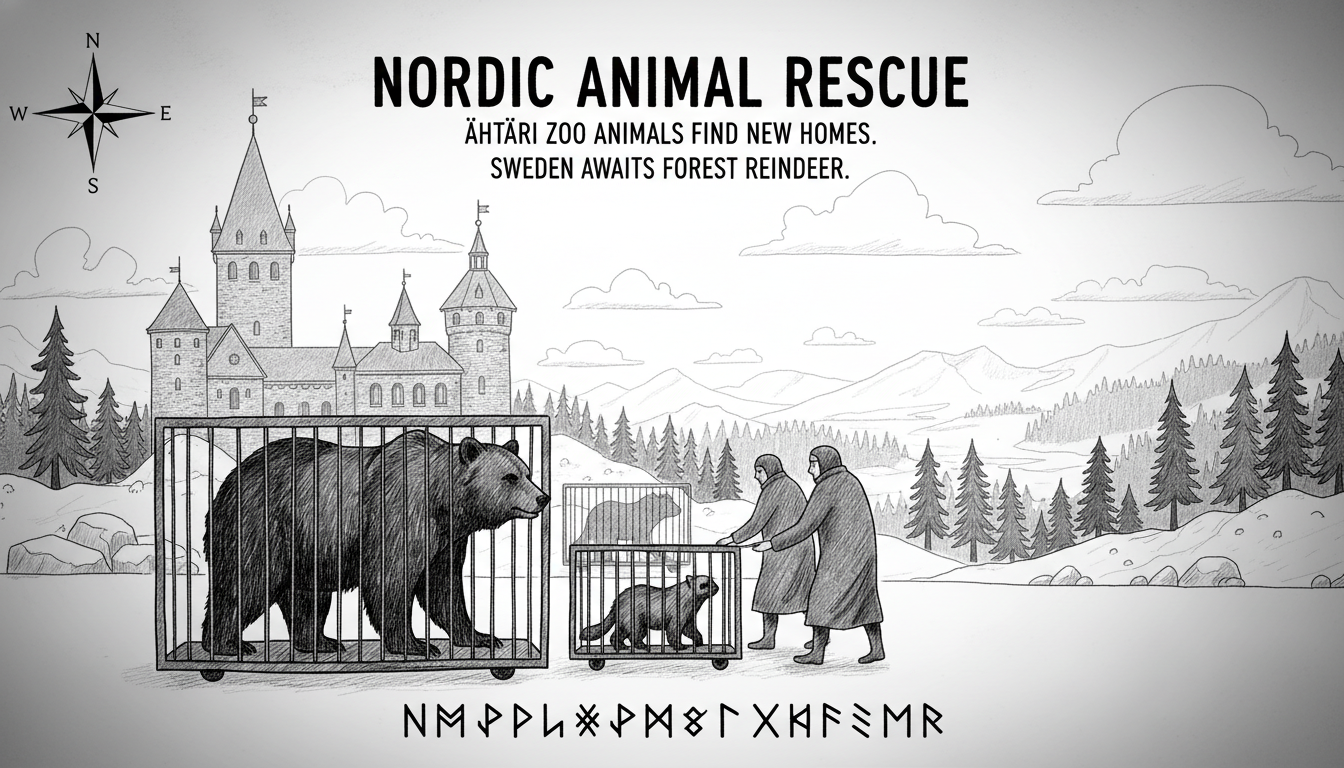Sixteen animals from the bankrupt Ähtäri Zoo in Finland moved to Helsinki's Korkeasaari Zoo last week. The relocation occurred smoothly over Thursday and Friday. Forest reindeer now occupy two enclosures at their new home. Mandarin ducks and bean geese will stay in protected areas during winter months.
The Visit and Care Association oversaw animal welfare during the transition. This organization now holds responsibility for the zoo's buildings, structures, movable property, and animals after the bankruptcy estate's sale. Ähtäri municipality retains land ownership but granted rental rights to the association.
Three forest reindeer remain at Ähtäri Zoo with planned relocation to Sweden. Last October, eleven forest reindeer traveled to Lauhanvuori National Park near Isojoki and Kauhajoki. Some will release into nature next summer while others will breed in acclimatization enclosures.
Nina Trontti, animal care and conservation director at Korkeasaari Zoo, confirmed ongoing cooperation. Her team helps find responsible enclosures for remaining Ähtäri animals. Transfers will proceed if no operator continues zoo activities by spring.
This situation highlights broader challenges facing smaller Nordic zoos. Finland's animal welfare regulations require proper habitats and care standards. Bankruptcy proceedings complicate these obligations. The coordinated response demonstrates Nordic commitment to animal welfare across borders.
International readers should understand Finland's strict animal protection laws. Zoos must meet high standards for enclosure size, veterinary care, and species-appropriate environments. When facilities fail financially, authorities prioritize animal relocation over euthanasia.
The Nordic model emphasizes cooperation between institutions. Korkeasaari Zoo's involvement shows how major zoos support smaller counterparts during crises. This network approach ensures animals receive continuous care despite ownership changes.
What happens next for Finland's zoo animals? The spring deadline looms for finding a new Ähtäri operator. Without one, remaining animals will disperse to vetted facilities. This process reflects careful planning rather than emergency response, contrasting with some international zoo closures.
Animal welfare organizations monitor these transitions closely. They verify that new environments meet species requirements before approving transfers. The forest reindeer moving to Sweden will undergo similar checks for their cross-border journey.

